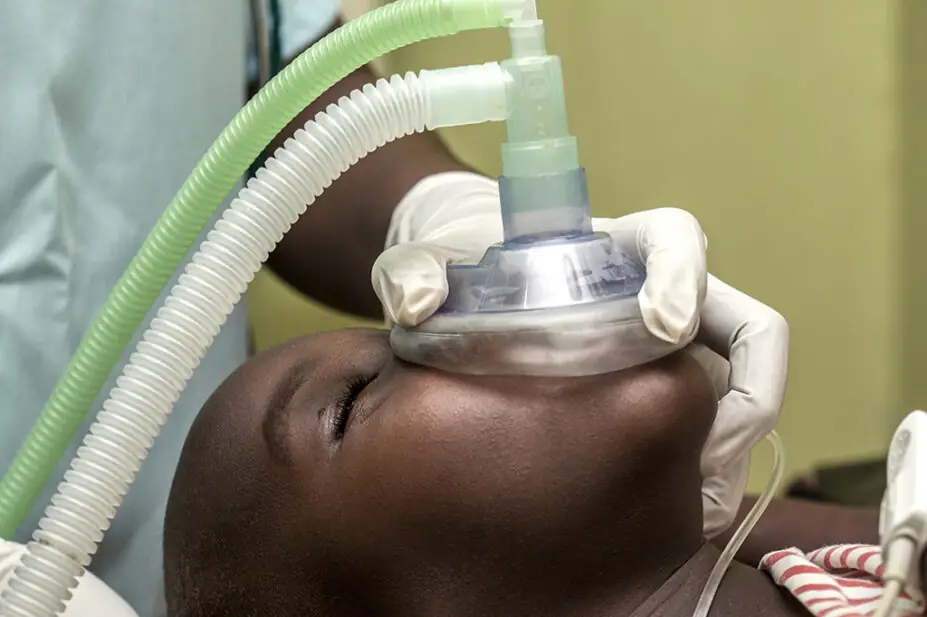
MAURO FERMARIELLO/SCIENCE PHOTO LIBRARY
Desflurane can be withdrawn from general use in the NHS, without clinical risk to patients, guidance published by NHS England has said.
The guidance was published following an evidence review on the use of desflurane by the National Institute for Health and Care Excellence (NICE).
In the review, published on 26 March 2024, NICE found “no high quality evidence to suggest that desflurane has any significant therapeutic advantage over other general anaesthetic agents” in people having neurological procedures or people with a body mass index of at least 30kg/m2 having any procedure.
The NHS guidance on desflurane decommissioning and clinical use, published alongside the review, said that desflurane may be warranted in “some specific clinical exceptions” identified by the Neuro Anaesthesia and Critical Care Society, such as selected patients undergoing long cranial neurosurgical procedures under general anaesthesia.
Desflurane, which is used for general anaesthesia, is known to be carbon intensive compared with equivalent gases, such as sevoflurane, and it has the highest global warming potential of all the anaesthetic gases.
In October 2020, as part of its pledge to produce net zero carbon emissions by 2040, NHS England set a target to cut the use of desflurane, from 20% of all volatile gas use by volume in 2020/2021 to 10% in 2021/2022, across all NHS providers.
Minutes from an NHS England and NHS Improvement board meeting, held in September 2021, showed that this target was met six months ahead of schedule.
In January 2023, NHS England announced that it intended to decommission the use of desflurane “by early 2024”.
Commenting on the new guidance, a spokesperson for the Association of Anaesthetists, said: “The Royal College of Anaesthetists and the Association endorse this new guidance and continue to share the commitment to stop the use of desflurane in routine practice, given that there are alternative, clinically-safe and readily available general anaesthetic agents.
“We look forward to continuing our work with NHS England to reduce the environmental impact of anaesthetic practices,” they added.
Helgi Johannsson, vice president and sustainability lead at the Royal College of Anaesthetists, said: “We have endorsed the NHS guidance, which gives clarity to our members and others about the decommissioning of desflurane and its permitted use in a small number of clinical exceptions.
“Our members have also been supportive and had vastly reduced their use of desflurane prior to it being decommissioned. This is a significant step in the right direction but there is more we can do and we will continue to work with NHS England and our members to reduce the environmental impact of anaesthetic practices.”
In the guidance, NHS England reported that desflurane use now accounts for well below 1% of the total proportion of volatile anaesthetics by volume used in the NHS in England, and that almost 90 trusts in England, ranging from community hospitals to highly specialised trusts, have stopped using desflurane altogether.
It also highlighted that healthcare professionals and trust colleagues can further reduce the environmental impact of anaesthetic practices by minimising unnecessary waste, such as from piped nitrous oxide and single-use plastics.


